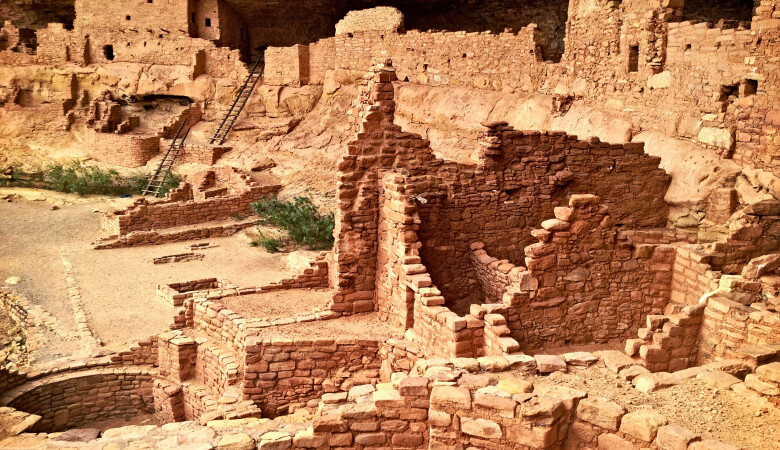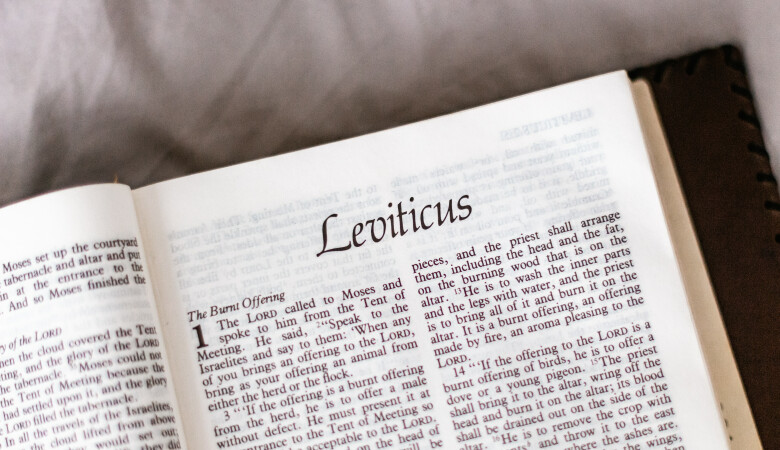Joyful Liberation from the American Dream (Hebrews Sermon 42 of 74)
October 09, 2011 | Andy Davis
Hebrews 10:32-35
Joy in Suffering, Persecution, Money and Possessions
I. Our Context... and Theirs
As we come to this text, Hebrews 10, particularly verse 34, I believe we're coming to the reason why the author wrote the whole epistle to begin with. This one verse is why he put pen to paper. That's what I believe. Now I know you hear me make many dramatic statements like that. This is the most important, or this is the center piece etcetera. But I really believe that the author wanted to preserve something fragile in the hearts of those that he was writing to. He wanted to preserve in them a perspective of faith, which liberated them from any need to protect what they had in this world, so that they could live freely for Jesus. Unafraid. Not holding anything back, because they were so filled with a sense of the glory that was waiting for them in the future world. And that that was threatened because of the persecutions they were going through. It was threatened, and he wanted to preserve it. And so, we see in verse 34, this statement about them. "You joyfully accepted the confiscation of your property because you knew that you yourselves had better and lasting possessions." Profoundly powerful themes that flow from that one verse. And the author, knowing that these people were fragile in their faith in that perspective, it was fragile, it was under assault by the devil, took up pen and paper and wrote the book of Hebrews. And so in order to understand fully how powerful this is, we need to understand our context and theirs, and then get into the exegesis.
Suffering From Prosperity?
So let's try to understand our context why we need to hear this verse, this passage today. The Christian Church in America, suffers from about 350 years of dominance and prosperity. That's how John Piper began his preaching on this passage, and I found it compelling. Let me say it again. The Christian Church in America suffers from about 350 years of dominance and prosperity. What do we mean by dominance? Well, from the time that the Puritans established the city on a hill in the Boston area in 1630, from that point on, Christians have been generally accepted as such in this society, in this culture, generally welcomed as Christians.
Our Christian faith has helped us in this culture, generally. And so, we have done well, it has been profitable to be a Christian in America over that period of time. Beneficial to be a Christian. Dominance also in that no other religion has had anywhere near the influence that Christianity has had on American history, not even close. Not Hinduism not Buddhism, not Islam, not Animism or polytheism or atheism. It's been Christianity consistently dominating our history more than any other religion. Dominance.
What do we mean by prosperity? Well, because of our Christian ethics, because of our Christian worldview, we have prospered, we have done well. We've been liberated from certain besetting sins, alcohol, drug abuse, laziness. We have redeemed the time, we have labored and we have become prosperous because of our Christian faith. And so our Christian faith gives us a sense of prosperity and an expectancy of it. And so dominance and prosperity.
What do we mean by suffers, that the Christian church in America suffers from this dominance and this prosperity? Well, it has created in our hearts as 21st century American Christians, a certain expectancy of success and prosperity and comfort that is not consistent with the way that the New Testament describes a Christian life. We expect to do well, we expect to be successful, we expect to be healthy, we expect our family lives to be orderly, we expect our society to be clean and orderly, we expect these things. And that causes us to be anemic in the Christian life. It causes us to be weak in what we try, what we attempt for the glory of God. We're weakened by this expectancy. And we've suffered from it. We are not as strong as our brothers and sisters in Christ who do not enjoy that kind of a positive relationship with their surrounding culture and the government in their country, etcetera. We are not as strong spiritually as they are. We don't endeavor the same kind of courageous things for Christ that they do. And so we suffer from it.
As I thought about these themes as they were being developed as I listened to what John Piper said about that, as I meditated, I thought how true it is, and how joyful it is for me to be able to stand up and proclaim on the basis of this text, the remedy whereby we can be liberated. I yearn to be liberated, don't you? To be freed from those invisible chains that hold us back from just living fully for Jesus at every moment. Don't you want to be liberated from that? And you know what it is that liberates you? It's faith. That's why we're going immediately from this right into Hebrews 11, the faith chapter, that's what it's about. Is to promote within us, this kind of bold confident assurance and other-worldly way of living, that we need so very much.
As I was thinking about these things, I was thinking about this phrase that we've come to know, "The American Dream." One writer in 1931 described it this way, "Life should be better and richer and fuller for everyone with opportunity for each according to ability or achievement." That's the American dream. Look, there's nothing intrinsically wrong with that, but as Christians, for us as Christians, it has a dark side. And I just feel that this text, that the book of Hebrews is a warning to us, it's a warning epistle. And it's exhorting us to watch out for the dark side of the American dream. Okay. That's our context, that's why we need to hear the text today. So we can be liberated, we can be missions minded, we can be evangelistic, we can be generous with our money, and our time, and use our gifts and be happy in terrible times of affliction and suffering. That's why we need to hear.
Persecuted for Being a Christian
What was going on for them? What was their context? Well, as we've said many times before, these were Hebrew Christian, Jewish people, who had made a profession of faith in Christ, probably testified to it by water baptism. But now their profession of faith in Christ was under daily assault. I say that based right on the text we're looking at today, this is where I got it, Hebrews 10:32-35. This section tells me they were under assault, they were having a hard time. And as a result, some of them were tempted to drift away or turn away or even fall away, apostatize from Christ because of that pressure.
And so the author gives them this book. The author gives them the book of Hebrews. And as it has unfolded before our eyes, we have seen that his strategy is to give us, I guess primarily the word superiority comes to my mind. The superiority of Jesus Christ and the New Covenant that He comes to give us, which results in a superior kind of life. And now we're kind of at that third aspect of the book of Hebrews, we've looked at the superiority of Christ or supremacy of Christ, we've looked at the supremacy or superiority of the New Covenant. And his priestly ministry within that New Covenant. And now we're getting to that aspect of the superior life that it produces, a different kind of life.
You should live a kind of life that non-Christians just don't understand, that just makes no sense to them. There should be, as far as they're concerned, an insanity to the way you live. This doesn't make sense. And that just flows from the life of faith that the author is giving us here. And it's powerful. So in the context then the author has told us that Jesus Christ is superior to anything and everything you find in the Old Covenant. These Hebrew Christians were being tempted to turn back from the New Covenant to Old Covenant Judaism, temple-based Judaism. And so the author says, "No, don't do it because Jesus Christ is superior to anything and everything you find in the Old Covenant." He's superior to the prophets who spoke at many times and in various ways. He's superior to the angels who mediated the New Covenant through Moses. He's superior to Moses who's merely a servant in God's house while He is the ruling Son over God's house.
He's superior to Joshua who brought them into a temporary Promised Land, but Jesus into a permanent and final Promised Land. He's superior to Levi and Aaron and that whole Levitical priesthood. And so he goes over in the book to start talking about the Levitical Priesthood which was the centerpiece of the Old Covenant. And say that Jesus' priestly ministry is superior in every way. A superior priest, He was to Levi. They were sinful men who died. Jesus is a sinless man who cannot die again, He is eternal, He will live forever as our great high priest. They offered an inferior sacrifice, the blood of bulls and goats, that's what they offered. But at the beginning of Chapter 10, we're told the blood of bulls and goats can never take away sin, never could, never will.
But Jesus offers for all time, one sacrifice for sins, His own blood, superior in every way. And He offers it in a superior place. They ministered in an earthly man made tabernacle, set up according to the laws of God, but still just a copy, a pattern, a shadow of their true reality. The true reality is a heavenly reality, and that's where Jesus ministers on our behalf. Superior in every way, and the New Covenant that Jesus comes to establish and it must be a New Covenant because in the Old Covenant, He couldn't have been a priest. He was from the tribe of Judah, and that Old Covenant forbade Him from being a priest, but he establishes a New Covenant and that New Covenant is superior in every way. In the words of Jeremiah the prophet, "I'll put my laws in their minds and write them on their hearts," that's regeneration. "I will be their God and they will be my people. No longer will a man teach his brother, or a man his neighbor saying, 'Know, the Lord,' for they will all know me, from the least of them to the greatest." That's the intimacy of our adoption and our intimate relationship with God. Consummated in heaven. "For I'll forgive their wickedness and remember their sins no more." That's justification.
Old Covenant didn't do any of those three things. It's a superior covenant. And so the author in Chapter 10 now, is reminding them of this, he's summarizing, he's going over these same things again. And then he turns a corner and gives them a series of exhortations. Since we have all these glorious things in the New Covenant. Since we have a new and living way, an access into the presence of God by the body of Jesus, by the blood shed on the cross, since our hearts have been cleansed from a guilty conscience, since our bodies are washed with pure water. He's telling us all that we have. Then He gives us a series of exhortations. "Let us draw near to God. Let us not forsake the assembling of ourselves together. Let us provoke one another or stimulate one another, agitate one another to love and good deeds. And let's keep on encouraging each other and all the more as you see the day drawing near."
So he gives them all of that and then he gives them the most serious, the most severe, the darkest warning in the entire Bible, warning against apostasy where God could become your enemy. It is a dreadful thing, a terrifying thing to fall into the hands of the living God. And so he gives this terrifying warning. And as we've talked before, but I explain again, the warnings are for us, the elect, the believers, they're for us, we must have these warnings. We must take in these warnings, we must heed them, and we will. If you're the elect of God, you've already come to saving faith, you know what you're going to do with the warning? You're going to take it seriously. And you're not going to apostatize, it's going to have its impact on you. And if you're just playing, if you're a gospel hypocrite you'll blow off the warning and you'll go to hell.
The warning is for us. The warning's for us. And so we heed it, and we take it seriously. And that brings us right to this point in the text that's their context. And I'm going to jump right to what I consider to be the centerpiece of it all.
II. The Centerpiece: Joyfully Suffering for Christ
Let's just go right to it and then I'll work kind of more or less backwards from it. And the centerpiece is in verse 34, "You sympathized with those in prison and you joyfully accepted the confiscation of your property, because you knew that you yourselves had better and lasting possessions." It's the point of it all. My desire is to create in you a yearning for that type of life, a yearning in your heart that you would live like that, free from earthly concerns to serve Jesus. That's what I want, just get to the heart of the matter. That's what I'm hoping that the Spirit will do through this text, right now.
Standing Firm for the Faith
But let's try to understand what was going on. Well, what was happening is that these Hebrew Christians, this church, this early Christian church was being persecuted harshly. Go back to verse 32. Talks about the earlier days of their walk with Christ, and he says, "You stood your ground in a great contest in the face of suffering." So there's persecution. They're being just directly attacked for their faith in Jesus, they're being persecuted. Now, we know that from the very beginning of the Christian faith, the beginning of the church, from the day of Pentecost on, there was immediately persecution by the Jewish authorities. The Sanhedrin, those that had put Jesus to death and immediately turn their sites on the church. And initially just kind of stunned into paralysis by the healing of the famous beggar sitting by the temple gate, didn't know what to do with that. They just let him go. But by chapter five in Acts, they are beating the apostles for their faith in Jesus, and warning them not to preach anymore in Jesus' name.
So immediately the persecution starts, through Jewish authorities. Wouldn't be long after that, that the Roman authorities would take over, and there would be a contest between, in effect, Christ and Caesar for centuries. And so persecution was part of the early Christian experience. And the author talks about it. He says that, "Remember how it was for you, you stood your ground." And maybe just simply endured. You didn't fall away during that time but you stood firm in your faith, during that time of persecution. And he calls it a great contest. The Greek word is athlesis from which we get athletic. It's kind of a wrestling match or a fight. And in this great contest, that's how you endured, in the middle of all of that it was a great contest. And he talks about, in the face of suffering, this tribulation, these trials. It could be anything, it could be a physical assault a beating with rods.
It could be something just as simple as public exposure to shame. He mentions that in verse 33, "You are sometimes publicly exposed to insult." That can hurt. Jesus doesn't blow it off during the Sermon on the Mount. "Blessed are you," he says, "When people insult you." We shouldn't minimize that. For somebody to stand there, and filled with hate, say mean things is not nothing. And so these people were publicly exposed. They were in some way publicly shamed. You could imagine a group of people around them, mocking them, spitting at them or throwing dirt on them or something in that way. And just deriding them for their faith in Christ. Publicly. And persecution. Maybe they were even physically struck, maybe there was some kind of a beating. Maybe it had to do with more economic pressure. Maybe in the Jewish phase of the persecution, maybe the authorities came down, said, "You can't go to their businesses. You can't frequent their businesses." And maybe they lost money as a result, and they just didn't have a viable business anymore and they became poor.
I think probably this is why Paul was constantly raising money for the poor among the Saints in Jerusalem. They just weren't able to make a living anymore. Because the authorities spoke against them, against their faith. Persecution. Could be beatings, it could be economic, it could be insults. "Sometimes you were publicly exposed to insult and persecution. And at other times, you stood side by side with those who were so treated." So in that case, a little bit different. Somebody else is being persecuted for their faith in Christ. And you're not, yet. But you say, "That's my brother, that's my sister. I can't let them go through that alone." And you push your way through the crowd, and you stand with them. You put your arm around them. You pick them up, you wipe their face from the blood or something. You're just there, and you share their persecution with them. Courageously. Showing compassion. It took great courage and at some point, it even got to the level of imprisonment.
Standing With Those in Prison
In verse 34, it says, "You sympathize with those in prison." So reading between the lines, we have to imagine what was going on. Is that at some point, these Christians were so shining their light before men that people were offended and were angry about it, and it got to the level of some kind of a court trial, some kind of a formal legal accusation against them and imprisonment. Either, it was a false accusation, or Christianity itself in some way, became illegal, and it was a true accusation, but based on an unjust law, in any case, prison resulted for some of them. Christians in the first century were accused of ridiculous things. It's just amazing some of the things that were said about our brothers and sisters who lived during that time. They were called atheists. I love that one, that one's my favorite one, because they didn't believe in the gods of the Greeks and the Romans. You remember how Polycarp in his martyrdom account, he was charged by them, swear away with the atheist. So he pointed to the crowd, and he said "away with the atheists," when they are the true atheists. We believe in the true God.
But we were accused of atheism, we were accused of cannibalism, because of the love feast that we would have because of the body and the blood of Jesus, that we're actually eating the body and the blood of Jesus, and so we were said to be cannibals. We were accused of rebellion against Caesar, because we would not worship Caesar as a god, but said Jesus is Lord, and so we were accused of being revolutionaries, which we weren't in one sense, seeking the overthrow of the Roman Emperor, we weren't, but we were accused of it. We were accused of incest, because we loved the brothers and sisters in Christ. All of these false accusations. Or as I said, maybe there was real legislation enacted against Christians, and they couldn't do anything but be imprisoned. But what happened was, again, as you read between the lines, it says you sympathized with those in prison. So what's going on is the church, as I envision, would be scattered throughout a city in smaller house churches cell groups, like our home fellowships. There wouldn't be one major gathering area like we have here.
And so the authorities would know of one particular cell or a couple of them. And on one horrible night, they would crack down on the Christians meeting in that house or in those houses, and drag them all away and put them in prison. But not everyone, not everyone. And they knew it, they hadn't gotten everyone. Let's say you are one of the Christians who wasn't arrested, what a terrible trial of faith that would be for you, because you knew what prison was like. It's nothing like what we experience, what we know in the 21st century, where the Eighth Amendment mitigates against cruel and unusual punishment. They had nothing against cruel and unusual punishment back then. It was awful. The prisons were awful dark, nasty places, filled with human filth, stench, disease, torture. You think about Paul and Silas, and they're in stocks and they're bleeding in the center of a darkened jail. I can't imagine what it must have been like, but worst of all, over the long term, there will be no medical care and no provision for food and water. Nothing. They didn't care what happened to you. There was no promise of a speedy trial, none of that. You were just there to die, really.
And if you didn't have an outside support system, to come in and bring you food and maybe clothing, some medical care and some water, you would die quickly. So now you are a Christian, and you know your brothers and sisters in another part of the city have been arrested, they were arrested tonight. What do you do, what do you do? And you know very well that the authorities are going to be noting who comes to bring them food and water. They would like nothing better than to get the whole group of them. So they just hold them out as bait. And you had enough faith, you had enough courage to sympathize with your brothers and sisters in prison and bring them what they needed to stay alive, during that time. "I was in prison and you came to visit me." You came by faith.
Joyfully Suffering the Plundering of You Property
And while you were there, you lost your property. While you were taking care of those in prison someone came and seized your possessions, your goods. Now again, as I imagine what would have happened, it was either done legally or illegally, didn't matter, effectively it's the same for you. Maybe it was a crazed mob that hated you as a Christian. And finally, they know that the time has come, there's a little more freedom and they just came and just plundered whatever you had and burned your house to the ground. So by the time you got back from prison, there's nothing left, you have nothing left in this world. Or maybe the government seized it, doesn't matter, but it's gone, it's gone.
I was talking to my kids about it. This morning, we're driving and I say, "I break our possession to three categories: Necessities, luxuries and momentos. I think it's valid three categories, right? So my kids started asking me, "Is this a luxury is that a luxury? That was interesting, interesting conversation. Is a refrigerator a luxury? That kind of thing. You guys can work through that and put a tag on everything you own, say necessity, okay, luxury, etcetera. And momentos.
So what's a memento? Is that a necessity or luxury, is neither one, it has nothing to do with the price of it, it has to do with the emotional value, it's something that was given, a gift. It might be in some sense worthless in one sense. Like art work done by a child at age three years and years ago, nobody would give you a penny for it, but it's priceless to you. And you came back that night, and it's all gone. Necessities, food, clothing, shelter, gone, You're now homeless, Luxuries, the extras that God blessed you with, those extra possessions that enhance and bless your life is gone. Your mementos are gone. It's all gone. And what does the verse say, "You joyfully accepted the plundering of your property." You joyfully accepted it. Now talking to my kids coming in this one, I said there's one of two explanations; either you're insane or you're a spiritual Christian. Either you're insane or you're a faith-filled Christian. One or the other.
What is the word accepted mean, the Greek word means welcome, to some degree, welcomed it. The same word is used in another place of the second coming of Christ, welcoming Christ. How do you do that? Well, you believe in the doctrine of providence, you believe that everything comes to you by the hand of a loving father. And you trust Him. And so they accepted it, but that's not all it says. There's an adverb there that's so astonishing. "You joyfully accepted the plundering of your property." He says. Joyfully. It's a super natural emotional reaction. "Praise God. All of my stuff is gone. Praise God that I've been plundered this night, it's all gone." Joyfully accepted. Now, this kind of supernatural, bizarre by the world's perspective, joy, is I tell you of the essence of saving faith. It's at the center of saving faith.
Jesus told us that, with the parable of the treasure hidden in the field, you remember that? The Kingdom of Heaven is like treasure hidden in the field. When a man found it, he hid it again and then in his joy, he went and sold everything he had and bought that field. It's dangerous to think; now he's got this treasure he can go back and get all his stuff back from the pawn shop, right? Get it all back. So he's got it all now, he has his original possessions and now he's got Heaven to boot. Oh be careful, friends. God is pushing us of it sometimes you can't have it all, you have to make a choice. And He gives you a choice.
And the man in the parable, joyfully turned his back on everything in the world so that he could have that treasure. That kind of joy is of the essence of genuine sanctification too. An irrational bizarre joy, it makes no sense at all to the unbeliever. But James commands us to have it in James 1. "Consider it pure joy whenever you face trials of many kinds because you know that the testing of your faith develops perseverance. And Perseverance must finish its work, so that you will be mature and complete, not lacking anything." You must have that joy in order to be fully mature, to keep growing and accept what God's doing. You've got to have the trials, the good times don't sanctify you. Not alone, they don't. But you consider it pure joy.
It's the joy that characterized the apostles in Acts 5, I already mentioned when they were beaten, they rejoiced that they had been counted worthy of suffering disgrace for the name of Jesus. That's the joy in this text right here. Thank God you counted me worthy of being persecuted for Jesus. Thank you Lord, I'm a real Christian, I'm a genuine Christian. It's says other worldly joy. Well, how did they do this? Well, the text tells us how they accepted joyfully the plundering or the seizing of their property. Well, it's because they knew that they had a better and lasting possessions.
So the NIV, I like the ESV a little bit better. "Since you knew that you yourselves had a better possession and an abiding one." The difference is singular or plural. Well, the Greek really to some degree, could go either way, possession, the word goods, et cetera. It's one of those words that you're not sure of it's singular or plural. So it's not a bad translation but let's go with the ESV, let's go with the others that give us a singular possession. You knew that you had a better possession, something better than all of this stuff. And what could that be? I tell you, it's God Himself. It's Almighty God, who is the treasure hidden in the field. As CS Lewis put it, "He who has Christ, and all the world has no more than He who has Christ alone." The world is a nothing Compared to God, the world is a nothing, it's dust on the scales, all the nations are as a dust on the scales compared to Jesus. We have a better possession. And mirth and rust cannot destroy it, And thieves cannot break in and steal, because we have God.
"Fear not Abraham, I am your shield and I am your very great reward." Hebrews 11:6 will tell us, "Without faith, it's impossible to please God, because anyone who comes to Him must believe that He exists and that He rewards those who diligently seek Him." He is the reward of a lifetime of seeking Him. "Alright, you've been seeking me your whole life, now you have me, at last you have me, you have what you wanted." They knew, these first century Christians knew that they had a better possession, better in every way.
Psalms 73, "Whom have I in Heaven but You. And earth has nothing I desire besides You." Psalm 16, "You make known to me the path of life. In your presence there is fullness of joy, at Your right hand are pleasures forevermore." I want to commend to you, Psalm 16:11, is the partner verse to Hebrews 10:34, it's a partner verse. It tells you what the better possession is and that it's lasting. God, is the better possession, in His presence is the fullness of joy, and at His right hand are pleasures forever more. It's a lasting thing. But that's not all that God tells us about our future reward. He tells us that there's going to be a city, a new Jerusalem that's going to be glorious, and radiantly bright with the glory of Jesus, and you will want to be there, to put it mildly.
You will want to see that beauty as it descends like a bride, beautifully dressed for her husband. You want to be there, you want to walk along those streets of transparent gold, whatever that means. How could we even put into words what we will see? And these people, these first century Christians knew that they had a better city to go to, and that they had an inheritance that could never perish, spoil or fade, they knew that they had this. And Hebrews 13:14, it says that here, we do not have an enduring city, but we're looking for the city that is to come later. We're looking ahead as aliens and strangers in this world. And I think just look ahead in Hebrews, Hebrews 11:13-16, sums up what they knew, and how they were looking ahead. Just look at that passage, it says, "All these people were still living by faith when they died, they did not receive the things promised, they only saw them and welcomed them from a distance, and they admitted that they were aliens and strangers in this world." People who say such things, show that they're not thinking of the city that they had left. If they had been thinking of the country that they had left, they would have had opportunity to return, instead they were longing for a better country. A heavenly one. And because of that God is not ashamed to be called their God, for He has prepared a city for them."
There's nothing wrong, I say everything right, in looking forward to the city too. Because to me, the thing that makes the city so beautiful is the glory of God, and the possessions then become one and the same. Our stuff, our crowns, our inheritance, our chunk of the promise land, whatever. It's ours, it's our possession and we'll never lose it, we will enjoy it forever. We talked about that this morning too. How is it a lasting possession, you know what it is? It means when you've had that possession for a thousand eons, it brings you as much joy after that as it did the first moment you had it. Nothing on earth is like that, nothing.
Just talk to the kids at 5:00 o'clock on Christmas Day. The joy has already diminished. There is nothing on earth that has a lasting joy, but in Heaven, everything has a lasting joy, it never diminishes only increases. And because they knew that they had for themselves a better possession, and a lasting one. They joyfully accepted the confiscation, the plundering of their property.
III. God’s Counsel to Them Who Were Actively Persecuted
And so what counsel does God give based on this? Well, to them who are being actively persecuted, He begins by charging them to remember how it was for them early on. "But remember the former days when, after you were enlightened, you endured a hard struggle with sufferings." And I just want to stop and just say, if you're drifting from Jesus, That's the remedy. Remember what it was like for you? Go back in your mind, remember, think again how it was. That's what the author does here. "Remember those earlier days."
That's what happened to Peter, remember Peter denies the Lord three times, remember, worst night of his life. Oh, is he drifting, and he's drifting quickly. And suddenly the rooster crows, remember? And then the text literally says, "Then Peter remembered the words Jesus had spoken, and he went outside and wept bitterly." It's just the remembering, you remember what it was like? It's what Jesus gives to the church at Ephesus, who had forsaken their first love. He says, "Remember the height from which you have fallen, repent and do the things you did at first." Remember your earlier affection, is what He gives to the Jews through Jeremiah, the prophet. He said, "I remember that the beginning of your life with me as my bride, how as a bride you followed me through the desert to a land not sown. Israel was holy to the Lord…" We can hear the misery the grief in God's voice. He said, "You are my wife and you love me back then. I remember the devotion of your youth." So remembering.
And so for them they were to remember, they were to remember their enlightenment. Remember the earlier days after your enlightenment, the word literally means that a spiritual light has come into their hearts. A light of the knowledge of the glory of God in the face of Christ, and the eyes of their heart were enlightened, they were opened. As Joshua shared earlier in Ephesians 1, the eyes of their heart were enlightened. The word is photidzo, from which we have photo and photography, if there's this light that came in them spiritually. But it's also used for how they then would let their light shine before men, and others would see their good deeds and praise God. And people were getting converted, the shining light in their lives, remember their enlightenment. And remember, you're suffering. Remember what you went through the things we discussed. And remember your courageous loyalty remember how you Joyfully accepted the confiscation of your property. Remember those days, remember your faith-filled knowledge, the fact that you have a better possession, and an abiding one. Remember how you just loved that and it brought you joy that night and during that time. Remember.
And he gives them then, in verse 35, "Do not throw away your confidence" your faith. Don't throw away that bold assurance. "It will be richly rewarded." We'll talk more about that verse next week, but that's what he tells them. That's his advice to them who are being actively persecuted.
IV. God’s Counsel to Us Who Are Not Actively Persecuted
But I think a responsible preaching from this text must ask this question in America, 21st century America; What does this text say to us who are not actively persecuted like they were? Does it say anything to me? If I don't have memories that I can go back to of when I was publicly shamed and beaten and dragged off into prison and put in stalks, and somebody had to feed me from the outside, I never went through that. What is our context here? What are we going through here? We have to be honest about that and say, that's really not been our experience.
So I would say, first of all, if I can urge you, just assess yourself by this passage. Just take your soul and line it up to this text. I don't want to start by just urging you to be a Christian, because this text holds up no good promise to you if you are not a believer. You don't have a better and abiding possession if you are not a Christian. There is nothing for you, but as it says in the text we just studied, a fearful expectation of judgement of raging fire. So I urge you to flee the wrath to come, and through faith in the Gospel. By faith in Jesus, receive the kingdom. Receive an inheritance that can never perish, spoil or fade. Receive heaven as a free gift. Turn away from your sins, turn away from your wickedness and your rebellion. Turn away from your practical atheism and not thinking about God. Turn away from these things and flee to the cross of Jesus. He was hung on the cross, once for all, His blood shed for sinners like you and me. All you need to do is trust in Him and you will have a better possession, and an eternal one. So start there.
But if you know that you are a believer, you know you are a Christian, I want to ask you some serious questions. Have you been polluted or corrupted in some way by the American dream, by the dark side of the American dream? Have you been polluted by an expectation that things will go well for you in this life, materially, health-wise, in terms of your reputation with co-workers, and all that? Have you been polluted by expecting that in this world? We're like on a white-water expedition here sometimes, friends. And there are all these strong currents that are pulling us away from Christ, away from a genuine faith. And Jesus told us that a man's life does not consist in the abundance of his possessions, but it seems like all of American culture is designed to try to refute Jesus' statement. "Oh yes, it does. Yes it does, a man's life most definitely consists in the abundance of his possessions and his pleasures and his trips and his experiences and his power and his success, that is life." Do you not see that? Do you see that in the ads that you see when you are watching something on TV, it's like it's telling you that. That is your life, this is life.
Jesus says, "No, it's not." But I'm just asking; Has that thought nod on your soul? Peter talks about things that wage war against your soul. Have you been, in some way, corrupted by that? The symptoms of it have to do with how much you are risking for Jesus now. Or another way to look at it is; How much of your life would make no sense to a non-Christian? If you believe that a man's life does consist in the abundance of his possessions, it will be impossible for you joyfully to accept the plundering of them. You can't accept it, you are actually going to fight it, aren't you? You are going to fight getting plundered, because that's your life, it's your livelihood, so to speak. You are going to fight and have those things protected. You are going to protect, you are going to have a life of self-protection. And so therefore you are going to value your reputation and your viability at work too much to share the Gospel with a co-worker. You are going to seek to protect your position there and you are not going to share with your boss. You are not.
You are going to value your fun and pleasure at a family reunion picnic, too much to share the Gospel with a lost relative, a lost father or mother, or uncle or cousin. "Hey, we were having a good time here, why spoil it?" You are going to seek to protect that fun feeling you are having. You are going to value your weekend hobby, whatever it is, your golf, your hunting, your antique shopping, or whatever it is that you would get excited about, too much to get involved in a church outreach on a Saturday. You are going to value your health too much to risk it on a mission trip to Haiti. You might get sick. I would say, based on my experience, not might, you will get sick. Every time I go to Haiti, I get sick, it's every time. And I know that, and it hinders me to some degree. I have to say like, "Do I want to do that again?" You will value your retirement portfolio and your future comfort in your retirement years too much to give sacrificially to missions and to other Christian things that God lays in your heart. You're going to protect these things. You are going to value your time too much to get involved in urban outreach or during rescue mission or job for life, or any of those things. International student ministry, you are just going to value and protect those things.
I tell you the whole point of the book of Hebrews, is to liberate you from that. Free you up. To loosen the chains that Satan's put around all these resource and get them flowing, so that by faith you can joyfully accept the things that will flow from you when you live sacrificially for God. Do you know, by faith, that you have a better possession and a lasting one, do you? Do you have a lively sense of that? Do you have a vigorous sense of that, today? And are you living for that Heavenly possession? Is it just giving you joy every day, is it giving you energy, you are just looking forward to it? Do you read Revelation 21 and 22 a lot? If not, do it? Read about what the new Jerusalem is going to be like. Read about the beauty and the glory of the place. Read about how marvelous it is that the gates are always going to stand open. And that the wealth of the nations are going to flood in through the gates. Read about the imposing size of that city, and the beauty of it, the majesty and the foundations of the walls. And the fact that there is a throne in the center of it all, and the river of the water of life is flowing clear as crystal right down the center. And the tree of life is there, and the leaves of the tree are there for the healing of the nations, and there's nothing harmful there, there's only beauty and health, and there's no more death and mourning and crying in pain.
Do you thrive thinking about your future inheritance? Are you living for it? And will you feel, turn it around, will you feel gypped if you die young or if a loved one dies young? Will you feel that you got ripped off? You know what that shows? It shows that you had a sense that there was something that really did belong to you and it was taken from you. This text says, "No, your possessions are on the other side, none of it's here." And so if it's a loved one that dies early, or if it's you and you know you are dying, do not feel ripped off and don't act like you feel ripped off. Please, for the glory of Christ, act like you are coming into your inheritance at last. And give those nurses and doctors something to think about if they don't know Jesus yet. Or another way to look at it is, would you feel jilted due to some of these things? We just had a wedding. Imagine, if at a wedding, if the bride or the groom didn't show up and how the other would feel jilted by it, and everyone that was there in their beautiful clothes, jilted.
Look, we're not owed these things in this life, and we're not going to get ripped off or jilted if we don't get them if they get taken from us. It's God's will. To God be the glory, let's live even more for Jesus, more than ever before. And so, I would say, as you assess yourself. Is your heart still as strong after Jesus as it was when you were first excited about being a Christian? Is it still passionate for Him? You are still living for that, you still love your quiet time, you just love praying, you love worship, you love being with the people of God. And if not, if you don't come up well with these diagnostic questions, then I just urge you to repent. I urge you to repent based on this text. I'm call on you to repent. I'm calling on myself to repent, to bring my life and conformity with the spirit of Hebrews 10:34, and to live a free life, and to start risking things for Jesus. And pray for our brothers and sisters in Christ who are in the first category, they are actively going through this right now. And they can read Hebrews 10 and know immediately what they're talking about. Just get to know the suffering persecuted church by the internet, that's the quickest way.
Go to websites like Persecution Project and some of these others and find out. And you will find pastors, I was reading about a pastor, Pastor Josef, who is in Iran and has the death penalty on his head. As far as I know, he's still not been executed. And they are charging him with apostasy from Islam. He says, "It's impossible, I was never a Muslim. And now I am a Christian, and this is an unjust charge against me." "Yes," they say, "but your parents were Muslim, therefore you can apostatize because you should have been a Muslim." That's the charge, that's how it's working there in Iran. But we have so many dear brothers and sisters in Christ in Iran and other places that are suffering imprisonment, persecution, even death, for Christ. Pray for them. Get to know what's going on in their lives, find out from those websites what you can do as an American Christian. And feed your faith, feed your faith.
Two verses in mind. I consider Romans 8:18, that "our present sufferings aren't even worth comparing with the glory that will be revealed in us." Do you believe that? Feed on that, meditate on that. Or how about this one, 2 Corinthians 4:17, "For our light and momentary troubles are achieving for us an eternal glory that far outweighs them all." Light and momentary. Well read his resume of suffering at Chapter 12 of that book and you'll know what he considered light and momentary, beaten, flogged, ship-wrecked, stoned to death, so they thought. Light and momentary. Get to the point where those verses are what you really believe. And if you can't be arrested for your faith, if you can't get beaten or insulted or whatever, then could you please suffer well those trials that are common to all people. Suffer those as practice trials for ones that make them later. So if you are sick, if your spouse is sick or hurt, if you are having economic reversals, if there are certain adverse providences, that are coming in your life, count it pure joy whenever you face any of those things, and you are practicing them for the harder test later.
And if I could just simply urge you to just get busy evangelizing, you'll know what persecution is, at least the 21st century American version. Just start sharing the gospel on those settings. Share the Gospel at the workplace, share the gospel with your neighbors, share the gospel with your relatives, lost relatives. Just get going, and then you'll find out when Jesus said, "Blessed are you when people insult you and persecute you and falsely say all kinds of evil against you. Rejoice and be glad, because great is your reward in Heaven." Let's evangelize. Let's get the word out. What was the last time you opened your mouth and said something difficult? I was one for two this week, alright? The guy who cut my hair, there was just something about that situation that was hard for me to speak, and I felt ashamed but I did not share the Gospel, I didn't. I hope I might get another chance with him. But I just was timid, I kept talking to him, but his answers were brief and short and nothing was going, and I just couldn't get going, and then my hair cut was done. I need longer hair, I guess, or something, I don't know what. Longer hair for evangelism, for the sake of the gospel, that is not going to happen dear friends.
But then a guy came to fix something at our house and I had a good chance to share with him, and he said he'd like to come visit our church. He lives in Apex. And I don't know that he'd come, I hope he does, but we had a good time to talk. I want to be more faithful than that. I want to have more than those two opportunities. I want 20, 50 of them. I want to be a river of evangelism, and I want you guys to evangelize. Open your mouth and share the gospel and then persecution will come. It's not because you want persecution to come, but just because you want to see people saved because you love them.
One final word and I'm done. Just because we are not presently being persecuted in America, it doesn't mean it's going to continue that way. I don't know what the future holds, but it doesn't look bright for our relationship with the surrounding culture and with the government. Do you know what I'm talking about? Our president, President Obama, said, "This is not a Christian nation." He said that. Remember that? Interesting statement. I agree with the words but not the heart behind it. I think, I don't know his heart, but I know what I would mean by saying that, I mean, differently. I know that our citizenship's in heaven. I've known that all along, and I'm not expecting 100% of any political nation to be Christians, it's just not ever happened, so I don't expect that.
But I think he means it a little differently, and there are ominous overtones, not so much his intentions, but just where we're heading on that. And I don't know that it's the case that within our lifetime, within a generation or two, that there will not be government-sponsored persecution of Christianity in the United States of America. I don't know that that won't happen. And the best thing we can do is imbibe Hebrews 10 and other passages and get ready for it, and get our children ready for it and our disciples ready for it, because I think it's coming. It's the norm around the world and across church history. Let's close in prayer.






























